
The following interview took place in the Temple Discussion (cityonfire.com’s now defunct Bruce Lee site) on 3/15/01 between regular vistitors of the site. All of the questions and answers were compiled by JT. Original chat session has been slightly edited for a tighter, easier read.
Robert Lee: I first would like to say that Bruce Lee was a very special person in many peoples lives. Bruce has been the cause of many people changing their lives around for the better. It also brings great pleasure for me to be able to share the Lee families memories with you all out there. Yes, Bruce was a hero to many but he was also a brother, husband, father etc. I hope I can shed some light on the human side of Bruce. He was great and did great things, but he was also just a regular guy who liked to hang out with friends and family. With all that said, lets get started.
COF: Did Bruce ever meet Elvis Presley?
Robert Lee: As far as I know, Bruce never got the chance to meet up with Elvis. I am sure he would have liked to. I think everyone would have liked to hang with the King.
COF: What you think Bruce would be doing today?
Robert Lee: If Bruce were here with us, he would still be involved with films. Bruce would be doing more directing as well as some acting. Bruce would love to show that an older person can be in great shape and still be able to defend himself or herself.

Scene from Robert Lee’s 1977 Golden Harvest film “Lady Killers.” Note Lee Kwan (“The Big Boss”) and Gam Dai (“Way of the Dragon”) in the background.
COF: What do you think of the current crop of Hong Kong/Hollywood action stars such as Jackie Chan, Sammo Hung and Jet Li? What rare unseen footage do you know exists?
Robert Lee: First I like to say that Bruce opened all sorts of avenues for Asian actors. I am happy that finally, people like Chan or Hung are getting their respect that they deserve. They are great performers. All these people have been influenced by Bruce and in fact most had worked with Bruce. There are still many obstacles for the Asian actors to overcome. As far as missing footage, all I can say is, yes, there is much. Hopefully in time we all will be able to see what Bruce wanted to share with us.
COF: What exactly are these “on going investigations” that are going into Bruce’s “accidental” death and how have these delayed your book?
Robert Lee: I believe we have touched base on these questions in the past. Now is not the time to discuss such matters. I will say that the Lee side of the Family have their beliefs, and our beliefs are valid. Thank you for your concern.
COF: I am a big fan of your record album “The Ballad of Bruce Lee”. I have the original LP from the 70’s, I have the american 45 RPM single as well as the Japanese 45 RPM single. I thank you for making my childhood a most memorable one by coming into this world and being part of the legend that is: “The Lee Family!”
Robert Lee: Thank you for the good words on my music. It is my personal Jeet Kune Do.

Robert Lee’s 1975 album “The Ballad of Bruce Lee.” The track “Parting” features lyrics written by Bruce Lee.
COF: In regards to Game of Death, does the film have an actual ending? Was the plot subject to change, or was it to be improvised along the way?
Robert Lee: I will tell you this about the Game. Bruce did have some sixty pages more or less. It had dialogue, ideas, fights etc. Bruce was the type to always be changing and discovering new ideas. Bruce might have, or not have changed what he had written. As far as I know there was no ending filmed yet, or beginning. There was a story line though. Bruce worked very hard on the Game and it shows. I have to say that there was much going on with The Game Of Death. I am sure there is extra footage here or there. We must not loose sight in what we have already in front of us, it can drive one crazy imagining what else is out there.
COF: What is your fondest memory of Bruce? If you had one question to ask Bruce – what would it be?
Robert Lee: Wow, this is a good one. Just being around Bruce influenced me greatly. I learned how to truthfully find my own path and Bruce was a big part of that. If Bruce was here today the one thing I would say to him was, I love you.

Robert Lee, Phoebe Lee (Bruce’s sister) and guest promoting the 2010 bio-film, “Bruce Lee, My Brother”
COF: I wanna know what do you think about the movie “Dragon: The Bruce Lee Story” by Rob Cohen and Linda Lee?
Robert Lee: I would honestly say that it does not portray Bruce’s life in the correct light. Unfortunately the real story has not been told correctly. Soon enough, the Lee family will be doing accurate projects on Bruce. I would say that Dragon to me was very disappointing. If you can only see that the rest of Bruce’s family was not even portrayed in the film. That should tell you something right there.
COF: Are you in touch with the BLEF (Bruce Lee Educational Foundation) and Linda Lee?
Robert Lee: I do not talk to Linda that often, but we still touch base.
COF: What would you like the new generation to know about Bruce?
Robert Lee: I would really like the new generations of fans to look at Bruce as a human being that did incredible things, and he was able to overcome many obstacles in his life. I guess I would simply want others to know that if you do express yourself truthfully, your path in life will come to you.

Robert Lee in 1977’s “Lady Killers”

Robert Lee with Sylvia Chang in 1977’s “Lady Killers”

Robert Lee with Sylvia Chang in 1977’s “Lady Killers”
COF: Bruce lost a great deal of body mass during 1973 and ceased his regular training six weeks prior to his death in July due to exhaustion. Did this happen?
Robert Lee: Bruce did loose a lot of weight close to his passing. I cant go into detail on why this was, at this time. I will say that the Lee family will come out with much desired information surrounding Bruce’s death, soon as the right time permits. Bruce did not do himself in. There were other factors involved.
COF: Is it true that Bruce was an avid practical joker?
Robert Lee: When I arrived to the states and was staying at Bruce’s house, I fell victim to one of his jokes. Bruce asked me to come in his study for a minute. I walked in to where Bruce was, and he was whipping his Chucks. He was incredible. He was moving them around with incredible speed. I was very impressed and walked out the room. As I was walking down the hall way Bruce ran behind me with his war cry swinging the chucks and hit me on the back of my head. I almost had a heart attack. Bruce started laughing because he changed his real Chucks for a pair of fake rubber ones. I thought they were the real thing. He loved that.
COF: Some Game of Death footage was released in the early 70’s, then disappeared to never been seen again. How did this footage make it to a theatre in Toronto, and why would it never be shown again? Did Bruce shoot any God footage in the 2-3 weeks before his death, and if he did, could his appearance (weight loss) have anything to do with the footage being hidden from the public? Also, did you ever find it difficult to carve your own niche in the world, and did there ever come a time where you just wished people would leave you alone about Bruce and let you get on with your life?
Robert Lee: Well, I must say you have been misinformed on the Game footage. I wish I had the time to tell you what I know. Let me just say: 1. No footage was released in Toronto, that has been any different from what has been released anywhere. 2. Bruce’s weight had nothing to do with being covered up. 3. It was hard for me after Bruce died because he was a loved one. I always had my own identity but like all older brothers I looked up to Bruce and followed some of his beliefs.

2004 book “Lee Siu Loong” Memories of the Dragon Bruce Lee,” which Robert Lee co-authored with Phoebe Lee, Agnes Lee and Peter Lee.
COF: During Bruce Lee’s final year in Hong Kong (you were in the USA at the time) why did he not go to your mother, sisters or Peter when all the stresses of the film industry became too much? Was Linda his only support? How close were/are you to Brandon and Shannon?
Robert Lee: Bruce always kept in contact with us. Bruce really handled stress well. We his family, always were there to support him in anyway. I was close to Brandon but unfortunately Shannon and I have not stayed in contact because of schedules. We will always have a bond as Uncle and niece.
COF: Are there any plans to release the Game of Death footage, also is there any other behind the scenes footage of Bruce Lee movies as yet unseen?
Robert Lee: I do not have the rights to the studio Game Of Death footage. I do have some of my own footage that I will be doing projects with in the future. There is a lot of footage out there yet to be seen. I even hear that there is an alternate fight for the end of Way.

Aarif Lee (young Bruce Lee), Robert Lee and Tony Leung Ka-fai (Bruce Lee’s father, Lee Hoi-chuen) promoting the 2010 bio-film, “Bruce Lee, My Brother”
COF: (1) Do you have any details of Bruce Lee’s trip to London in the early 1970s? Will any of your Game of Death footage be included in the Region 2 Hong Kong Legends DVD due out this Summer?
Robert Lee: I can speak for myself and say that I really like England and the British people. I really don’t know much about Bruce’s trip to England. As far as the other question, I really do not know what will be on the DVD when it is released.
COF: Which of Bruce’s movies is you favorite?
Robert Lee: Well, I love them all. I must say that Way is my favorite, because it was Bruce’s baby. He did everything on that film.
COF: Did Bruce ask you not to make it public that you two were Brothers? Did he have a weight gain plan for you? Do you know if Bruce Lee ever meet with Muhammad Ali or Elvis Presley?
Robert Lee: Bruce did say that to me but he as only joking. Bruce was very caring and loving brother. He would do anything to protect me. That was Bruce’s character, always joking around. Bruce would have loved to have met Ali and the other. Bruce had much respect for Parker.
COF: Which movie character was most like Bruce?
Robert Lee: Bruce was probably most like his character in Enter The Dragon. You see his Physical and you hear his philosophy. It is important to note that Bruce was truly one of the guys. He was very humble and sincere. As far as a question that has never been asked, well, you just asked it.

Robert Lee and Phoebe Lee (Bruce’s sister) promoting the 2010 bio-film, “Bruce Lee, My Brother”
COF: Can you recall a fight in which Bruce was involved and is there any truth in the story that Bruce left for America in 59 because he had beaten up the son of a triad and had a price on his head? How much of Bruce did you see in Brandon and how did news of his death affect you?
Robert Lee: Bruce had many fights, and in Hong Kong you never know who you are fighting or who the family of the victims are. Bruce had some trouble, but nobody he could not take care of himself. Brandon’s passing was tragic, we must see what he brought us as a gift. He shared himself with us, just like Bruce did.
COF: There has been talk of you brother owning a fire arm could you shed some light on this? Also there was also a lot of debate regarding Bruce using steroids do you know anything on this topic?
Robert Lee: Bruce liked all kinds of Weapons and studied how they worked. Yes, he did own firearms. He recieved them as gifts. I am a firearms expert and license to teach.
COF: Can you tell us anything about your investigation regarding your brother’s death? Do You know what exactly happened to Bruce while his back injury? Was it caused by lifting weights?
Robert Lee: Bruce’s death has been investigated and always will be. The Lee family does believe there was foul play. In the future the Lee family will be coming out with projects that support our beliefs. There is much to say, and much did happen. When the time is right, all will see the truth. Bruce hurt his back from weights not a fight like you see in Dragon: The Bruce Lee Story.
COF: Do you have any letters from Bruce? If you do, are you going to release them to the public?
Robert Lee: Me and my family had contact with Bruce frequently. By phone or letters we kept in touch. I do have very valuable writings from Bruce, and plan on possibly using them for future projects.
COF: When did you discover you wanted to be a musician? What inspired you to be one?
Robert Lee: As a small child I found the love for music. As I got older I found out that music was my personal Jeet Kune Do. There were many great groups out when I was growing up and they influenced me greatly. I still make music to this day.

Robert Lee had a popular music career in the late 60’s and throughout the 70’s (both as a solo artist and with his beat band, The Thunderbirds), including a duet album with Irene Ryder, a popular Eurasian Hong Kong English pop singer.
COF: Bruce is our hero, is there anyone you look up to or admire, and why? Also, what is your personal philosophy of life?
Robert Lee: There are many people who I consider Heroes. I must say that Bruce was, and is my true hero. He taught me so much about life in a small amount of time. The bottom line is that Bruce expressed himself truthfully and he rocked the world when doing it. I remember going to the theater and watching Bruce on screen and thinking WOW, he is incredible. I was simply a fan like everyone else, and I still am. Bruce was awesome.
COF: What do you think, Robert, can any one in this world express JKD in its pure form like MASTER LEE.
Robert Lee: JKD is the truth. It is the truth of life and the truth of ones path (The Journey we take). JKD means to grow and adapt with life in any situation. This does not stop at only Martial Arts. You can be a painter or writer and musician. All of these and more have their own personal Jeet Kune Do. JKD is going to be different for everyone, and it should. It is a way of life. To fully know Jeet Kune Do, you must strive to know yourself.

“The Lady Killer” Chinese Theatrical Poster
COF: Could you possibly tell us your feelings on people that continue to make money on your brother’s name?
Robert Lee: It is unfortunate that certain people will go to any length to profit on Bruce’s name. The Lee family has watched this from a far, but we know what is going on. This is why we, the Lee family plan on doing our own projects so we can get the real truth out there. There was more to Bruce than what he ate in his diet or how many push-ups he did. To truly know Bruce, you must understand where he came from. There are still many great stories to tell and the Lee family will tell them.
COF: Do you have any plans to record new music in the future?
Robert Lee: I have just recorded a song for my son. It is about Bruce. The song is gaining popularity in Hong Kong. I am always playing around with music, it is in my blood. Music is my Jeet Kune Do.

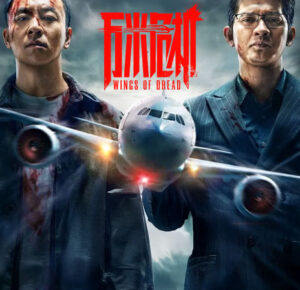

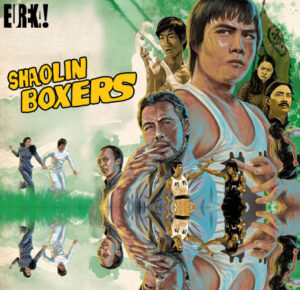
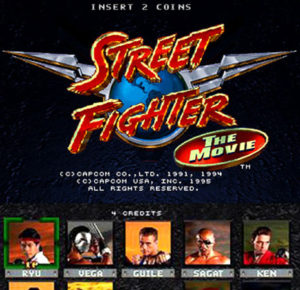
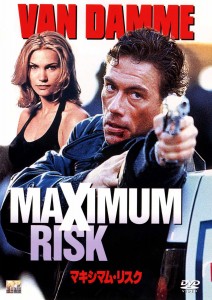
























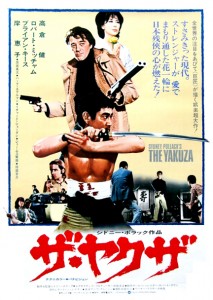


Be the 1st to Comment